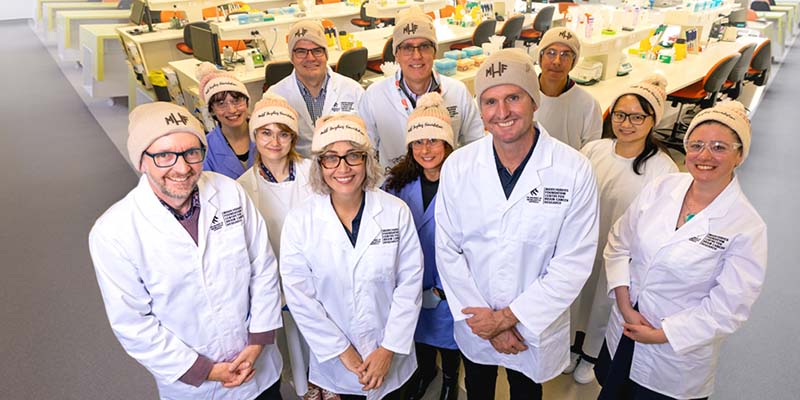
Paediatric Brain Cancer
Professor Matt Dun
Professor Matt Dun is a translational biomedical scientist that has been supported continuously by State and Federal Government research fellowships since the completion of his doctoral studies (2012). Currently, he is a National Health and Medical Research Council (NHMRC) Investigator, Emerging Leader, also supported over recent times by a ChadTough Defeat DIPG New Investigator Grant. Professor Dun leads the Cancer Signalling Research Group at the University of Newcastle, Hunter Medical Research Institute, which focusses on childhood leukaemia and childhood/adolescent brain cancer research. Use sophisticated pharmaco-phospho-proteogenomic techniques his team characterises the cellular signalling pathways that are dysregulated by the genetic individualities of a patient’s cancer. This profiling strategy attempts to identify novel treatment targets and drug combinations to improve survival.
In his career, Matt has been decorated by 29 national and international awards for his paediatric cancer research,. Notably, in 2019, he was named the NSW Premier’s Outstanding Cancer Research Fellow, and in 2020 I received an Australian Institute of Policy and Science Young Tall Poppy Award. In 2022 he was humbled to receive an International DIPG ‘Big Hero’ Award (presented in Washington D. C.) as well as the University of Newcastle, College of Health, Medicine, and Wellbeing, Mid-Career Researcher Award. Since the completion of his PhD, he has secured $13.8 million dollars in research funding including a Cancer Institute NSW Translational Cancer Research Fellowship (2013), then successive Cancer Institute NSW Early Career Fellowships (2014-2016 and 2017-2019), followed by an NHMRC Investigator Grant (EL1, 2020-2024), complemented by a ChadTough Defeat DIPG New Investigator Grant (2020-2021). Several significant Cancer Institute NSW and NHMRC Equipment Grants have helped him and his colleagues establish a platform of high-resolution quantitative mass spectrometry at the University of Newcastle and Hunter Medical Research Institute that underpins his paediatric cancer proteogenomics research program.
In 2018, he identified a novel therapy for the treatment for paediatric brain cancers. ‘Paxalisib’ which has since been granted Pediatric Rare Disease Designation (August 2020) by the USA Food and Drug Administration (FDA). In 2021, in collaboration with the Pacific Neuro-Oncology Consortium (PNOC) at the University of California San Francisco (UCSF), his research led to the commencement of an international clinical trial for patients diagnosed with diffuse midline glioma (DMG) (NCT05009992) – combination therapy targets the unique and emerging features of the tumour, with each drug targeting critical mechanisms discovered by the research of his laboratory.
The University of Newcastle acknowledges the traditional custodians of the lands within our footprint areas: Awabakal, Darkinjung, Biripai, Worimi, Wonnarua, and Eora Nations. We also pay respect to the wisdom of our Elders past and present.
